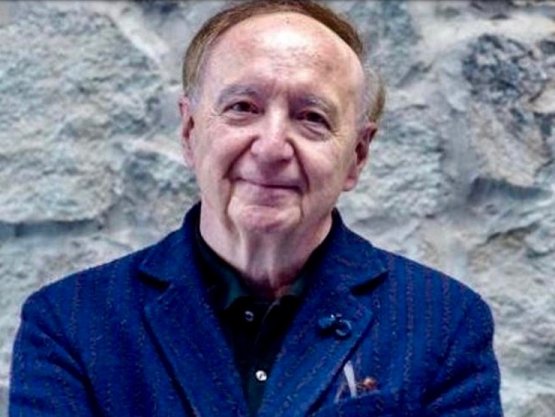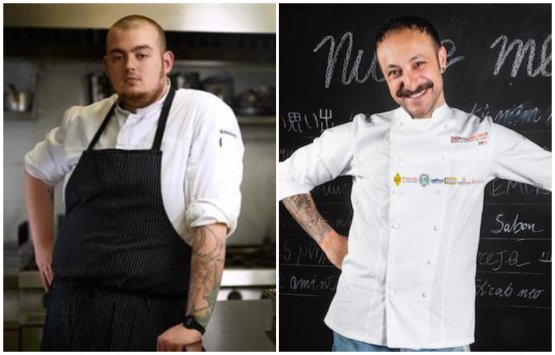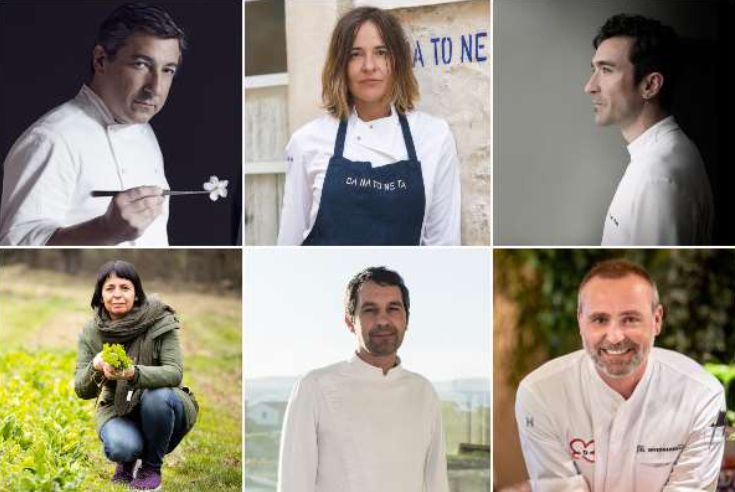The pandemic has accelerated many trends in the world of cuisine. However, as we restart, the future scene is still undefined. Understanding what awaits us is one of the goals of fine dining congresses, which are about to return. The Identità Golose congress is set for the end of September, from the 25th to the 27th, as Paolo Marchi told us here and Claudio Ceroni here. But before that, there's Madrid Fusión, from the 31st of May to the 2nd of June: it's one of the most awaited and "historic" events, the first edition being in 2003, and it was indeed on the occasion of the second edition that Paolo Marchi and Carlo Cracco met in the Spanish capital and came up with the idea: why not do something similar in Italy? The following year, Identità was born.
But let's go back to Madrid Fusión, which has an important news: participants can now choose between two options, namely going in person to the Ifema, Madrid's trade fair area, or attending the different conferences via a digital platform (you can sign up here). Most of the presentations will focus on a track, Gastronomía Circular, that is to say "circular gastronomy", “freshly picked and freshly cooked cuisine”, the short cycle of products and the use of resources. «Rural and urban world have been connected – says José Carlos Capel, one of the most important culinary critics in Spain, and the president of Madrid Fusión – Even science and technology have proven to be more respectful of nature».

In the meantime, there's one doubt haunting us. If cooking has changed, or is changing, should cooking congresses change too? If so, how? We ask Capel himself: «We have introduced a digital platform, but other than that, Madrid Fusión 2021 will follow the same structure of the previous editions. We've chosen a new theme, this will be the year of Gastronomía Circular, but without changing the order of the classes or the way in which they were developed until now. The format, in other words, is the same. So I don't think there will be big changes in cooking congresses for the time being».
If anything, they aim to include, in the attention paid to research-based cooking. a new focus on liminal aspects. Capel confirms: «Madrid Fusión this year has more expectations than ever. Despite the difficulties of the pandemic, we've managed to widen the topics. On top of the cooking congress, we will hold a big congress on wine - The Wine Edition – with the participation of important professionals from all around the world. At the same time, we have promoted the existing MIP congress dedicated to bread making and desserts. In this edition we will have, in fact, three congresses in one».
Madrid Fusión arrives right as restaurants are opening again across the world. How will the restaurant industry change after Covid? And how will cooking change? «It's hard to answer. From my perspective of culinary critic, when the situation will go back to normal, I don't think the industry will change much. We will lose part of those
menús del día caused by smart working and closed offices. Delivery and take away services will continue to grow, but restaurants will make little changes in the way they work, if not for something which is now essential: the digitalisation of all hospitality services, like booking management, and payment tools. In other words, technology and modernisation applied to management».

Davide Caranchini and Diego Rossi, the Italian guests at the congress in Spain
At the congress there will also be two speakers from Italy:
Davide Caranchini and
Diego Rossi. «In Italy there are some great young chefs.
Caranchini is among them and follows the philosophy of our congress: respect for seasons and a close connection with small producers. We also like
Diego Rossi – hence we invited him – for his rebel spirit and his capacity of representing high quality food with exceptional products but in a laid-back setting. An attitude that looks at the future».

Some of the speakers: Joan Roca, Maria Solivellas, Eneko Atxa, Fina Puigdevall, Javier Olleros and Rodrigo de la Calle
There will be many more guests, and prestigious too. For sure Spain's giants, like
Joan and
Josep Roca,
Ángel León,
Andoni Luis Aduriz,
Oriol Castro and
Eduard Xatruch,
Eneko Atxa and
Ricard Camarena and many more. And other speakers from abroad, with
Mauro Colagreco above all. Australian
Josh Niland will be back. He's the author of one of the most interesting lessons last year, which we followed live and about which we wrote here:
Fish? It's best if it's NOT fresh. Revolutionary ageing techniques (we then followed the topic in a series of articles featuring Italian chefs, see
Luigi Pomata,
Gianfranco Pascucci,
Moreno Cedroni-Luca Abbadir and
Francesco Sodano.
Capel says: «
Niland is revolutionising the world of fish. His commitment for sustainability, the way in which he works with fish, and his capacity of reaching the perfect ageing are fantastic. His presentation, last year, one of the best of the congress, was not enough in our opinion. So this year he will talk about different cuts of fish. Something crucial in cooking».
Finally, we ask
Capel about the health of the Spanish restaurant scene: «I'd say good, in fact very good, without chauvinism. There are new generations of well-prepared young chefs who have raised the average standards. I don't mean fine dining, a sector that was hit hard and is surviving through sacrifices, but "bourgeois" hospitality, which has increased in quality in all its facets. Like in Italy, Spanish cuisine looks now with greater interest at the countryside, at the sea, at small producers. The goal is to save nature, a very long process still».
Translated into English by Slawka G. Scarso